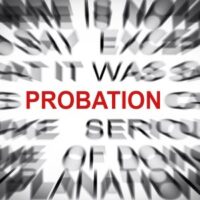Probation in Delaware: Understanding the Rules, Risks, and How to Avoid Violations

For many folks facing criminal charges in Delaware, probation can seem like a definite benefit over spending time in jail. When it comes to probation, the court will allow you to remain in the community but under supervision. It’s important to understand, however, that probation is not simply freedom with a warning. In fact, it comes with strict conditions, and even small missteps can land you back in front of a judge. Understanding how probation works—and how to avoid violations—is imperative to protecting your future.
How does probation work in Delaware?
Generally speaking, probation is a court-ordered period of supervision that usually follows a conviction or guilty plea. Instead of serving all or part of a jail sentence, the court allows you to live in the community under certain circumstances. During your probation, you remain under the supervision of a probation officer, who monitors your compliance with the court’s requirements.
The length and terms of your probation will vary depending on the severity of your offense and the judge’s discretion. While some people only serve a few months, others can face years on probation.
What are some common conditions of probation?
The conditions of your probation are designed to both hold individuals accountable and to reduce the likelihood of reoffending. Such conditions commonly include:
- Regular meetings with a probation officer
- Payment of fines, fees, or restitution to victims
- Mandatory drug and alcohol testing
- Completion of counseling, treatment programs, or community service
- Restrictions on travel without prior approval
- No possession of firearms or illegal substances
- Obeying all laws (even minor offenses can trigger a violation)
Since conditions can vary from one case to the next, it’s important to review your specific probation order carefully with your attorney.
What counts as a probation violation?
A probation violation occurs when you fail to meet one or more of the terms that are set by the court. Violations can be classified as either:
- Technical violations – Such as missing a meeting, failing to pay a fine, or traveling out of state without permission.
- Substantive violations – Such as committing a new criminal offense while on probation.
In either case, your probation officer can file a violation report. You may be summoned back to court for a hearing.
Consequences of violating probation
Violating your probation can carry serious consequences. Depending on the circumstances, the judge can:
- Issue a warning and reinstate your probation, possibly with stricter terms
- Extend the length of your probation
- Impose additional conditions, such as more frequent check-ins or treatment requirements
- Revoke probation and require you to serve the original jail sentence
Judges have the discretion to determine what happens next. The outcome of a violation of your probation can vary considerably.
Talk to a Wilmington, DE, Criminal Defense Lawyer Today
Michael W. Modica represents the interests of Wilmington, DE, residents who have been charged with a crime. Call our Wilmington criminal defense lawyers today to schedule an appointment, and we can begin preparing your defense right away.
